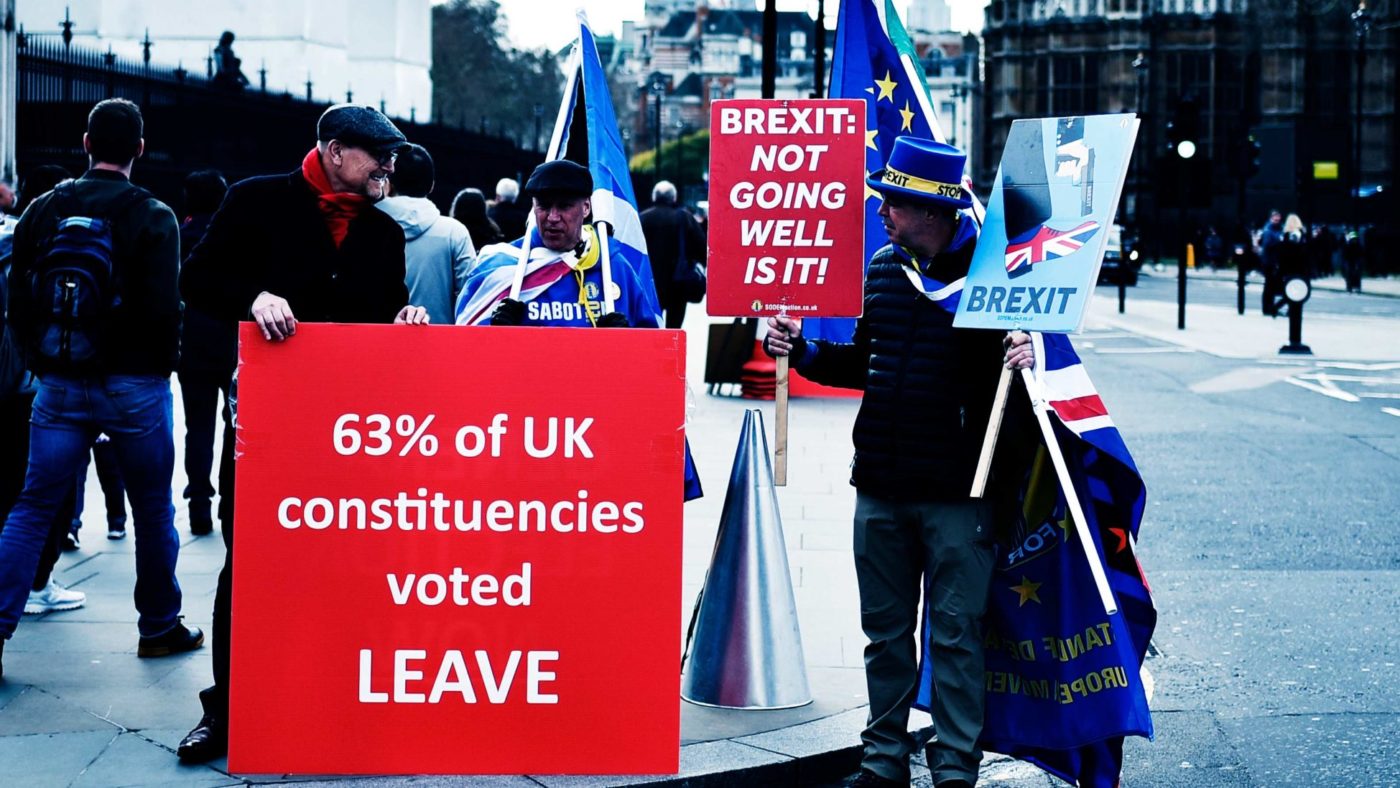It’s no longer particularly controversial to say that Brexit isn’t going well. Polls have consistently shown that the public thinks so across the board, and on Wednesday a Sky Data survey found that 90 per cent thought the way the UK was handling its departure was “a national humiliation”.
It’s hard to avoid the conclusion that the apportionment of blame for this situation will be highly politically significant. So who does the public hold responsible?
A second Sky Data poll on Thursday asked this directly and found the public divided. Though the poll wasn’t good overall for Theresa May, with a majority saying she wasn’t on their side on Brexit, Brits are somewhat likelier to blame MPs (36 per cent) than the Prime Minister (24 per cent) for the current situation, with a third (33 per cent) answering “both equally”.
Although a breakdown by referendum vote isn’t available, it appears from the demographics that Leave supporters may be likelier than Remainers to blame MPs for the impasse.
Ipsos MORI’s latest poll, conducted Saturday to Wednesday, also asked who would be held responsible in the event of a no deal Brexit, with respondents asked to choose two or three options from a list of who would be responsible.
This presented a less encouraging picture for the government, with almost half (48 per cent, up 13 points since December) saying that they would be to blame, and about a third (35 per cent, up 4) saying Tory MPs, just ahead of the EU (32 per cent, up 5).
Brexit campaigners would be blamed by 28 per cent (down 7), still above Remain campaigners (23 per cent, up 9) although the gap between them is much smaller. Labour was also on 23 per cent (up 4) and other parties were unchanged on 10 per cent.
These shifts seem to fit with other data. The larger leads in Westminster voting intention that had been opened up by the Conservatives since the Brady Amendment in January have collapsed in most recent polls, suggesting a negative impact from recent events in Parliament.
Views on the government’s handling of Brexit have become yet more negative in recent months, yet the balance between those thinking Brexit is the right or wrong decision has continued to move at glacial pace. That would be consistent with Brexiteers blaming the government, rather than thinking – as some Remainers would no doubt have hoped – that Brexit itself is the problem.
It’s also worth considering what, if the deal were to be rejected again in Parliament, the public thinks should happen next. YouGov found that, by 45 per cent to 41 per cent, Brits would prefer to delay Brexit, with responses splitting heavily along Remain/Leave lines.
Ipsos MORI asked about the length of a potential delay. Up to three months was supported by 48 per cent and opposed by 38 per cent, with Conservative voters net opposed, but only narrowly (48 per cent to 41 per cent).
However a delay of up to two years was much less popular, being opposed by 58 per cent to 34 per cent overall, and by 78 per cent to 16 per cent by Tory voters.
That’s what people have been telling pollsters. But what might the actual impact on party support be? Unfortunately people usually aren’t always good at predicting how they would feel in a hypothetical situation. This adds uncertainty, and to a different extent in different hypothetical scenarios.
For example, a delay may not be hugely popular, but it seems reasonable to think that the timing of Britain’s departure would have less of an economic impact – politically or economically – than the terms of on which we leave. As such, gaming the political impact of a no deal Brexit is quite different, as this also requires a view on the economic impact in a way that doesn’t really apply to a delay, meaning that we can be less certain about it.
On the one hand is the threat to the Conservatives’ perceived economic competence. This has historically been a strong predictor of general election outcomes, and the previous instances of the Conservatives losing their advantage on the economy – such as after the ERM crisis in 1992 – have not generally ended well for them. If the impact on the economy is as bad as most economists expect, the impact on the Tories could be devastating too.
On the other hand, the Conservatives are quite heavily reliant on the votes of Leavers, so being seen by them as failing to deliver would have consequences too, and arguably has already.
It’s hard to overstate the significance of the next week.
CapX depends on the generosity of its readers. If you value what we do, please consider making a donation.


